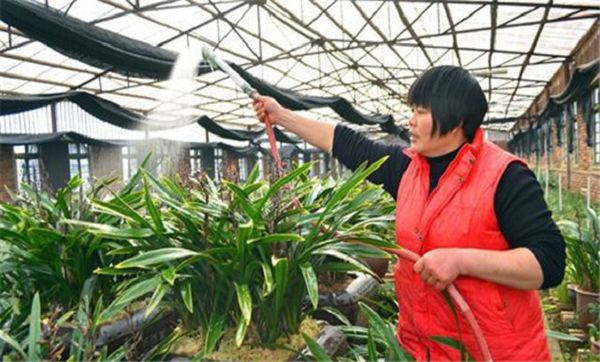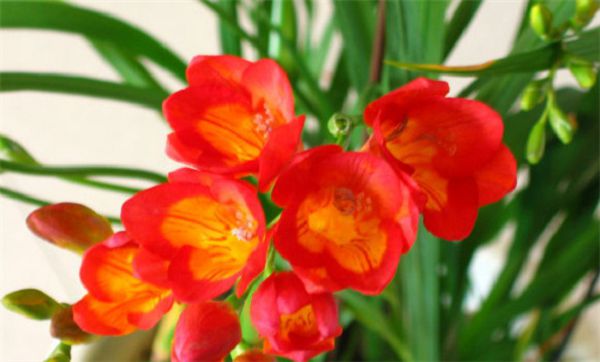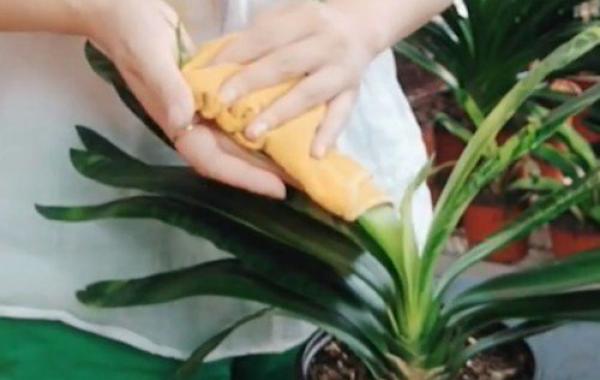Watering methods of orchids and matters needing attention

Watering is one of the key measures for the success of orchid planting. Many inexperienced orchid farmers are confused about how to water orchids. Let's take a look at.
The principle of watering orchids
As the saying goes, dry orchid and wet chrysanthemum show that the water demand of orchids is far lower than that of chrysanthemums. Orchid leaves are small and fleshy roots, although do not need too much moisture, but like the air moist. The new buds of orchids begin to grow in early spring every year. In summer drought, watering can increase the humidity of leaves and air, but there can be no stagnant water in the basin.
Watering method of orchids
There are three ways to supply water to the roots of orchid plants: irrigation, sprinkling (dripping) and soaking. Irrigation is to use a kettle to inject water along the edge of the basin, the advantage of this method is that the water will not reach the center of the leaf, the disadvantage is that the watering speed is slow, and it is difficult to pour through, it must be irrigated repeatedly to achieve the effect of watering through. Sprinkling is to sprinkle water with a spray pot or shower head to wet the whole orchid environment, so that the water seeps from the soil surface to the orchid root, and the wet orchid basin. The advantage of this method is that the water can pour through the whole orchid basin, but the disadvantage is that the water is easy to splash into the leaf heart, so you should use it carefully, otherwise you will break your heart. Soaking is to dip 3/4 of the orchid basin into the water together with the plant material. The advantage is that the water can be soaked, but the disadvantage is that it is easy to spread bacteria and is time-consuming and labor-consuming. Orchid cultivation experts often mix these three methods, and the effect is very ideal.
Matters needing attention in watering orchids
Summer should be carried out in the early morning and evening along the edge of the bowl. After autumn, the dew is heavier on a sunny night, and the soil in the basin should be more dry and less watered. At this time, the degree of shading should be reduced and the shading time should be reduced. After the middle of October, all shades should be opened and full illumination should be implemented. If it is sunny for a long time in autumn, the basin can be watered more when it is very dry. After the orchid falls, or the growth is nearly stopped, it can be watered less. After entering the house in winter, the basin soil can maintain a certain humidity.
Related
- Is the orchid suitable for indoor use? Is it good for the body?
- How to prevent the empty root of orchids?
- What to do after the crab claw orchid is withered?
- Why are the leaves of orchids always yellow? Fertilizing and watering.
- Can the root of the gentleman orchid be saved if it is rotten?
- Diagnosis and treatment of cotton-blowing beetle insects in Cymbidium
- There is a way for a gentleman's orchid to rot.
- What is the most suitable temperature and humidity for the orchid?
- How to raise a gentleman's orchid? Cultivation techniques of Cymbidium
- How to prepare the nutritive soil for the cultivation of Cymbidium



